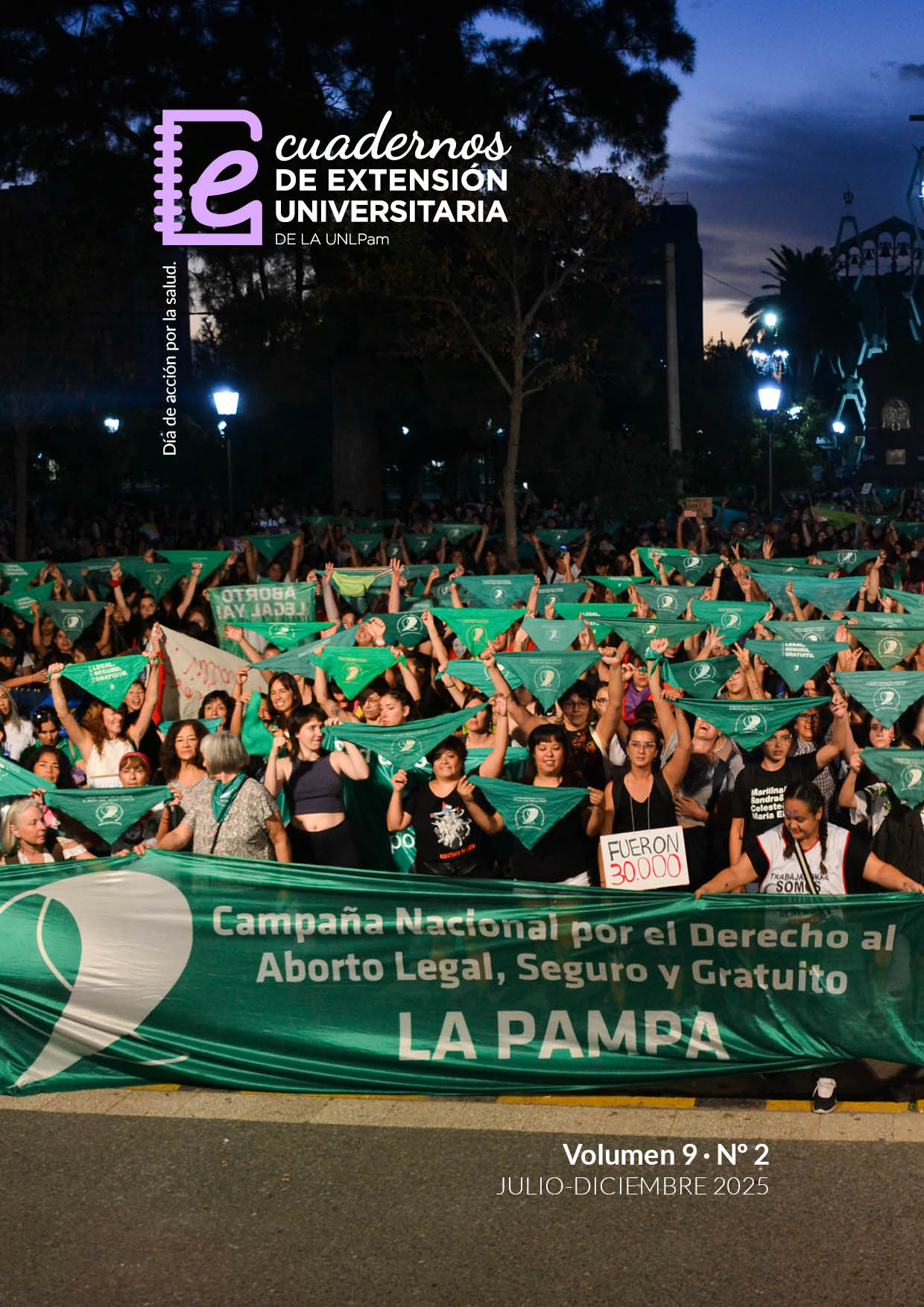Challenging narratives, capturing memories: the Photographic Walk for Gender Diversity on Wikimedia Commons as a practice of public history in university outreach
DOI:
https://doi.org/10.19137/cuadex-2025-09-0210Keywords:
photo walk, LGBT+ history, gender diversity, public history, Wikimedia CommonsAbstract
This article presents the experience of planning and carrying out the Photographic Walk for Gender Diversity on Wikimedia Commons, a public history and university extension initiative aimed at expanding LGBT+ representation in Wikimedia projects. The event, held in downtown Florianópolis, sought to document and upload images of the LGBT+ community’s memory sites, promoting visibility and digital heritage preservation. Based on this experience, we discuss the challenges and lessons learned in organizing Wikimedia-related events, reflect on the relationship between extension and research, and analyze the photo walk as a practice that connects memory, urban space, and community engagement.
Downloads
References
Araujo, V. L., & Rangel, M. M. (2015). Apresentação—Teoria e história da historiografia: Do giro linguístico ao giro ético-político. História da Historiografia: International Journal of Theory and History of Historiography, 8(17), 318–332.
Borges, L. A. P. (2019). ADEH: confluências globais e devolutas sociais em Santa Catarina. Revista Santa Catarina em História, 13(1), 74-88. https://ojs.sites.ufsc.br/index.php/sceh/article/view/3296https://doi.org/10.15848/hh.v0i17.917
Castro, R.; & Rodrigues, T. O. (Eds.) (2024). História pública e teoria da história. Letra e Voz.
Figueredo, D. C. D. (2024). Relatório interno de suporte da Caminhada Fotográfica para a diversidade de gênero no Wikimedia Commons-UDESC (2024.1). https://w.wiki/DKbB
Gonçalves, J. (2021). Políticas e poéticas de memória: olhares e travessias. Revista Tempo e Argumento, e0104. https://doi.org/10.5965/21751803ne2021e0104
Hartman, S. (2022). Vidas rebeldes, belos experimentos: histórias íntimas de meninas negras desordeiras, mulheres encrenqueiras e queers radicais. Fósforo.
Lawrence, T. (1989). A history of drag balls, houses and the culture of voguing. Voguing and the house ballroom scene of New York City, 92, 20-25.
Mauad, A. M.; Almeida, J. R.; & Santhiago, R. (Orgs.) (2016). História pública no Brasil: Sentidos e itinerários. Letra e Voz.
Mauad, A. M. (2018). Imagens em fuga: Considerações sobre espaço público visual no tempo presente. Revista Tempo e Argumento, 10(23), 252–285. https://doi.org/10.5965/2175180310232018252
Pereira, A. C. B. (2018). Precisamos falar sobre o lugar epistêmico na Teoria da História. Revista Tempo e Argumento, 10(24), 88-114. https://doi.org/10.5965/2175180310242018088
Platina 92, Mix Casarão Passado e presente 1, Wikimedia Commons, 2024. https://w.wiki/D8e9
Queiroz, I. H. L. (2013). Entre mortes, perseguições e emergências: a criação da Associação em Defesa dos Direitos Homossexuais da Grande Florianópolis através das páginas jornalísticas. Emblemas, 10(2). https://periodicos.ufcat.edu.br/emblemas/article/view/29241
Queiroz, I. H. L. (2014). A Capital Gay do Brasil: política, turismo, economia e a construção de imagens acerca de Florianópolis-SC através das páginas jornalísticas (1999–2006). Revista Santa Catarina em História, 8(2), 1-21. https://ojs.sites.ufsc.br/index.php/sceh/article/view/761
Ramilo Araujo, M. (2024). Los proyectos Wikimedia como herramientas para aprender, generar y compartir conocimiento libre sobre el medio rural. In: I Congreso Internacional de Educación Rural Siglo XXI, 1, Cortes de la Frontera. Anais [...]. Cortes de la Frontera: COCEDER, 2024. https://educacionrural.coceder.org/images/WEB_EducacionRural/Comunicaciones/Mesa5/jueves/03. Mentxu Ramilo (online).pdf
Rodrigues, R. R. (2024). Política de alianças: das vantagens e possibilidade da parceria entre história pública e teoria da história (R. Castro, & T. O. Rodrigues, Eds., p. 33-52). Letra e Voz.
Santamaria, S. (2024, 12 de setembro). Wiki Takes and archaeology: Synergies for heritage documentation and dissemination. Diff. https://diff.wikimedia.org/2024/09/12/wiki-takes-and-archaeology-synergies-for-heritage-documentation-and-dissemination/
Santhiago, R. (2016). Duas palavras, muitos significados. Alguns comentários sobre a história pública no Brasil (A. M. Mauad; J. R. Almeida; & R. Santhiago, R., Orgs; p. 23-36). Letra e Voz.
Schmitt, E.; Araújo, T.; & Gonçalves, A. (2024). Verso do Folder de Divulgação do Evento, Wikimedia Commons. https://w.wiki/D7wT
Schittino, R. (2016). O conceito de público e o compartilhamento da História (A. M. Mauad; J. R. Almeida; & R. Santhiago, R., Orgs; p. 37-46). Letra e Voz.15(2), 5–22. https://seer.ufrgs.br/index.php/educacaoerealidade/issue/view/3059
Silva, M. A. (2003). Se manque! Uma etnografia do carnaval no pedaço GLS da Ilha de Santa Catarina. [Dissertação (Mestrado em Antropologia Social), Centro de Filosofia e Ciências Humanas, Universidade Federal de Santa Catarina]. https://repositorio.ufsc.br/xmlui/handle/123456789/84642
Wexelbaum, R. (2019). Coming Out of the Closet: Librarian Advocacy to Advance LGBTQ+ Wikipedia Engagement (Mehra, B., p. 115-139). Emerald Publishing Limited.
Wexelbaum, R. S.; Herzog, K.; & Rasberry, L. (2015). Queering Wikipedia. Library Faculty Publications. https://repository.stcloudstate.edu/lrs_facpubs/49
Whose Knowledge? (2024). VisibleWikiWomen Initiative. https://whoseknowledge.org/initiatives/visiblewikiwomen/
Wikimedia Commons (2024a). Category:Caminhada Fotográfica para a diversidade de gênero no Wikimedia Commons. https://w.wiki/DPQv
Wikimedia Commons (2024b). Commons:Welcome. https://w.wiki/azV
Wikimedia Commons (2024c). Commons:Project scope. https://w.wiki/PDQ
Zagovora, O., Flöck, F., & Wagner, C. (2017). “(Weitergeleitet von Journalistin)”: The Gendered Presentation of Professions on Wikipedia. Proceedings of the 9th ACM on Web Science Conference, 83-92. Association for Computing Machinery. https://doi.org/10.1145/3091478.3091488
Downloads
Published
Issue
Section
License
Comité Editorial de la Revista Cuadernos de Extensión Universitaria de la UNLPam:
Por la presente, declaro que soy autor/a del artículo titulado (nombre del artículo), de carácter original e inédito. En caso de que este artículo fuera aceptado para su publicación en Cuadernos de Extensión Universitaria de la UNLPam, autorizo a la revista a publicarlo en forma digital y a difundirlo en sus redes sociales.
Asimismo, adhiero a la licencia Creative Commons denominada “Atribución - No Comercial CC BY-NC-SA”, mediante la cual se permite copiar, reproducir, distribuir, comunicar públicamente la obra y generar obras derivadas, siempre y cuando se cite y reconozca al autor original.







1.png)













262.png)

.jpg)



